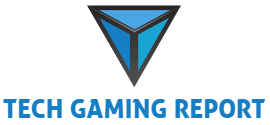The father of the World Wide Web, Tim Berners-Lee, does not see blockchain as the most viable solution for building the next generation of the Internet. “Ignore the Web3 stuff,” the physicist and computer scientist advised the audience on Friday at the Web Summit in Lisbon, according to US broadcaster CNBC. Therefore, he was not at all convinced of the future plans of the crypto visionaries.
Web3 “isn’t the web at all”
“It is important to create clarity to discuss the impact of new technologies,” said Berners-Lee. according to the report on the big conference stage. “You have to understand what the terms we’re discussing really mean, beyond buzzwords.”
The computer scientist and physicist described it as a “real shame” that “the Ethereum people” have adopted the existing Web3 name “for the things” “they do with blockchain.” Actually, this form of Web3 “isn’t the Web at all.”
Decentralized internet of the future
The idea behind the still relatively nebulous term Web3 is a decentralized internet in which data stays in the hands of users and doesn’t disappear on closed platforms from operators like Amazon, Facebook, Google and Microsoft. The initiative is based on distributed ledger technology (DLT), which includes blockchain, cryptocurrencies such as Bitcoin and Ethereum, and non-fungible tokens (NTFs). Opera, for example, introduced a fairly complete basic Web3 application in January with the “Crypto Browser Project”.
Berners-Lee is also in favor of opening up data silos. The director of the World Wide Web Consortium (W3C) relies on his own Solid decentralized web project. The open source initiative aims to let users decide for themselves where their personal information is stored. Ideally, this is a dedicated “solid data module” over which the owner has full control.
The British see no place for DLT in this context. “Blockchain protocols may be functional for some things, but they’re no good for Solid,” he noted. “They’re too slow, too expensive, and too public. Personal data storage needs to be fast, cheap, and private.”
Berners-Lee complained that many Web3 technologies were confused with the broader concept of “Web 3.0” that he helped shape. His original approach was to build a semantic web enriched with data that machines can read and process.
To implement Solid, the 67-year-old founded startup Inrupt, which reportedly received $30 million in venture capital in a December funding round. The company wants to develop a global “single sign-on” feature so that anyone can log in to web services from anywhere. There should also be login IDs with which users can share their information with third parties. A “Common Universal API” is also planned, which is a programming interface that applications can use to retrieve data from any source.
Hope for the web as a collaboration tool
In June at The Next Web conference, Berners-Lee responded to the question of whether he believed in the salutary promise of Web3, short with “nope”. In fact, he envisioned the web more as a collaboration tool, she explained at the time. The parts of the solution must grow together from different minds. The result was more of a publishing medium. However, he does not lose hope of making his initial idea come true.
In principle, the web parent is not an enemy of blockchain applications. In 2021, for example, he had his original source code for the World Wide Web, which he developed during his time at the European nuclear research institute CERN, auctioned off by US auction house Sotheby’s as NFT. To do this, he signed the files with the original timestamps. The auction of the digital artwork raised $5.43 million to go to charity.
Berners-Lee used the 2018 Web Summit to propose a new social contract for the web. According to him, the “Magna Carta” should help combat undesirable developments such as hate, state hacking and cybercrime by building strong communities. He also takes aim at business models that help spread disinformation. The final version was the focus of the opening of the United Nations Internet Governance Forum (IGF) in Berlin in 2019. Its principles were incorporated into the declaration on the future of the Internet, which the US and the EU published together with its partners in April. .
(tw)

Introvert. Beer guru. Communicator. Travel fanatic. Web advocate. Certified alcohol geek. Tv buff. Subtly charming internet aficionado.
